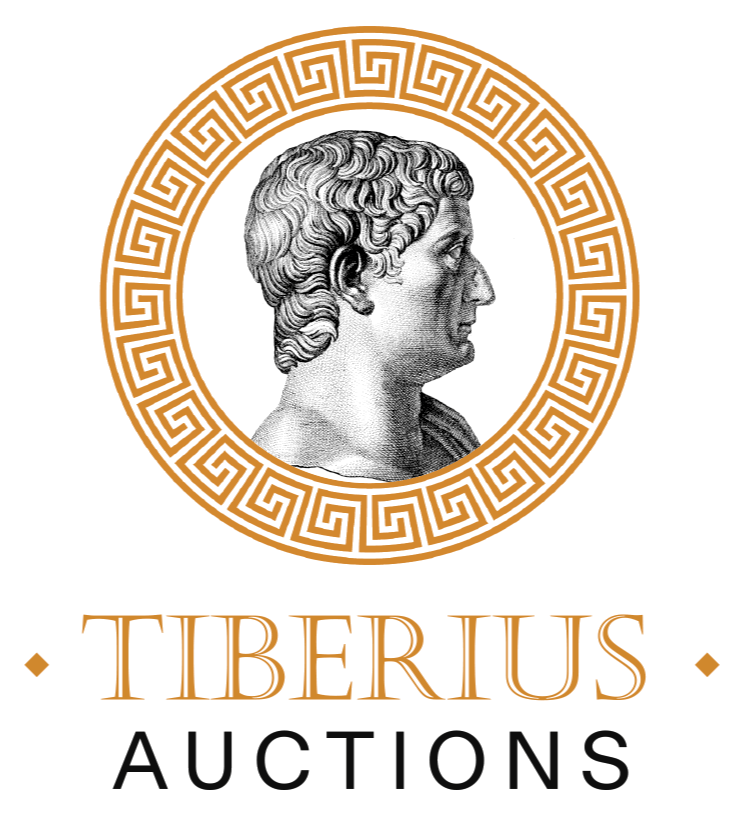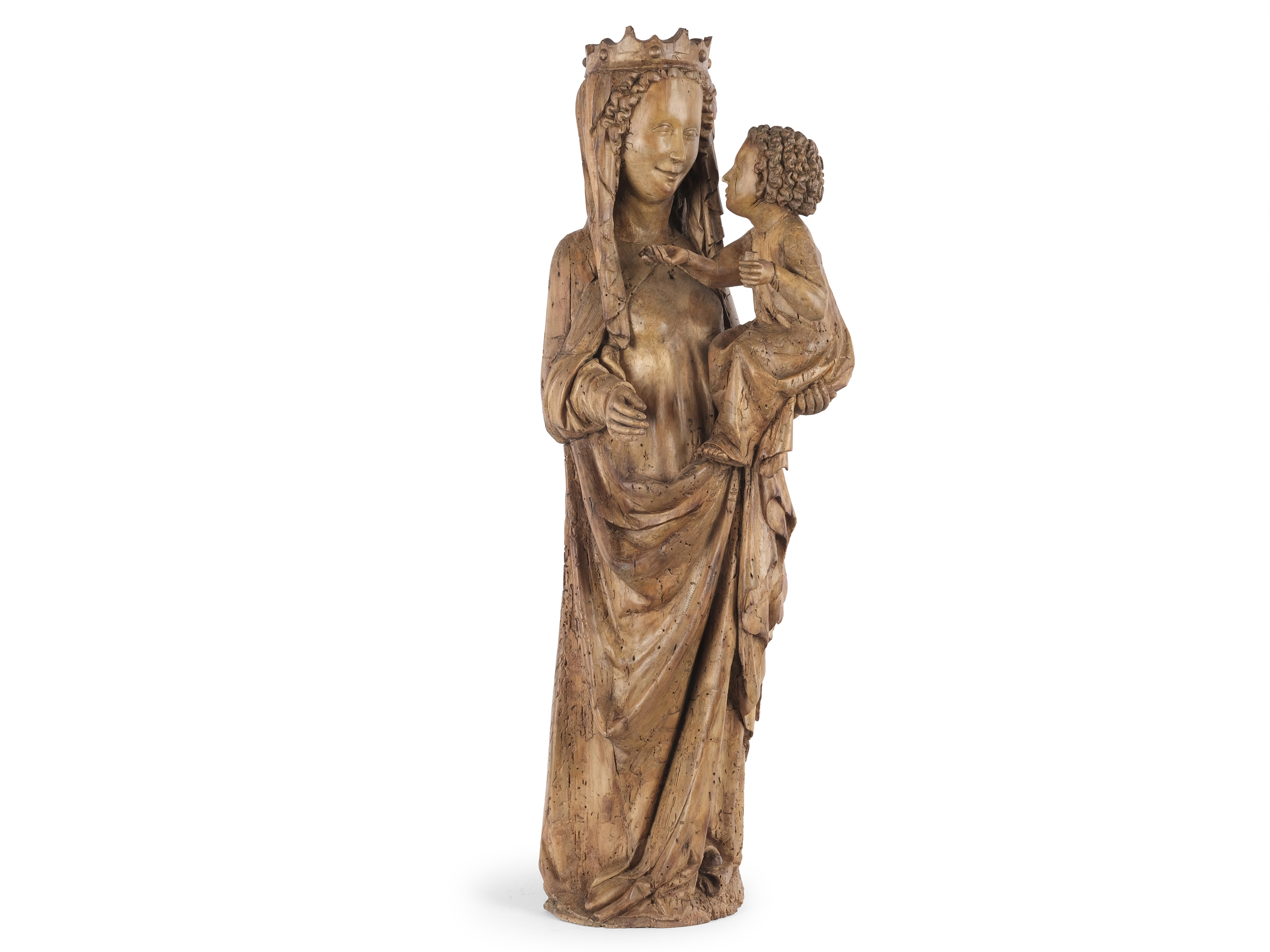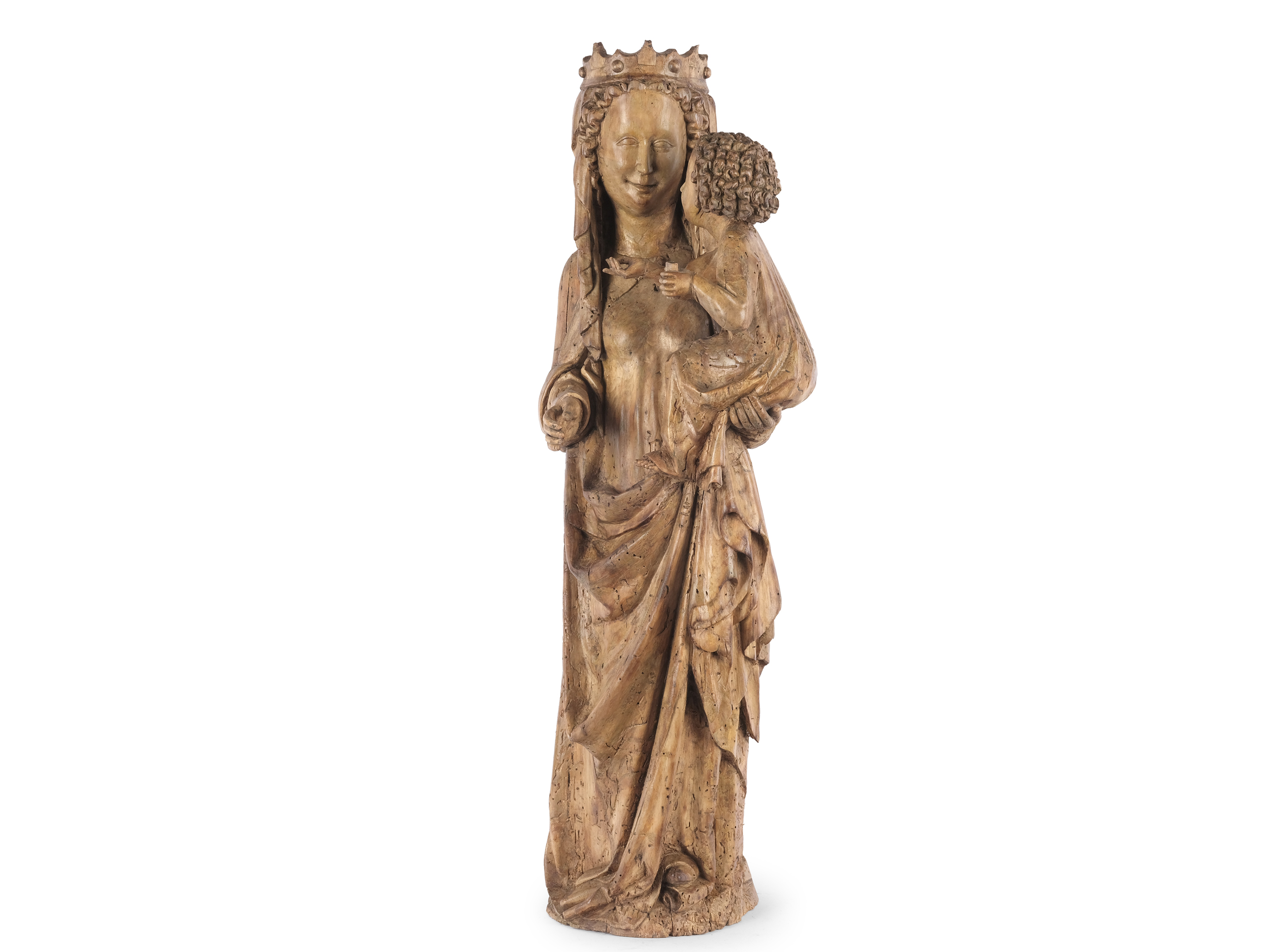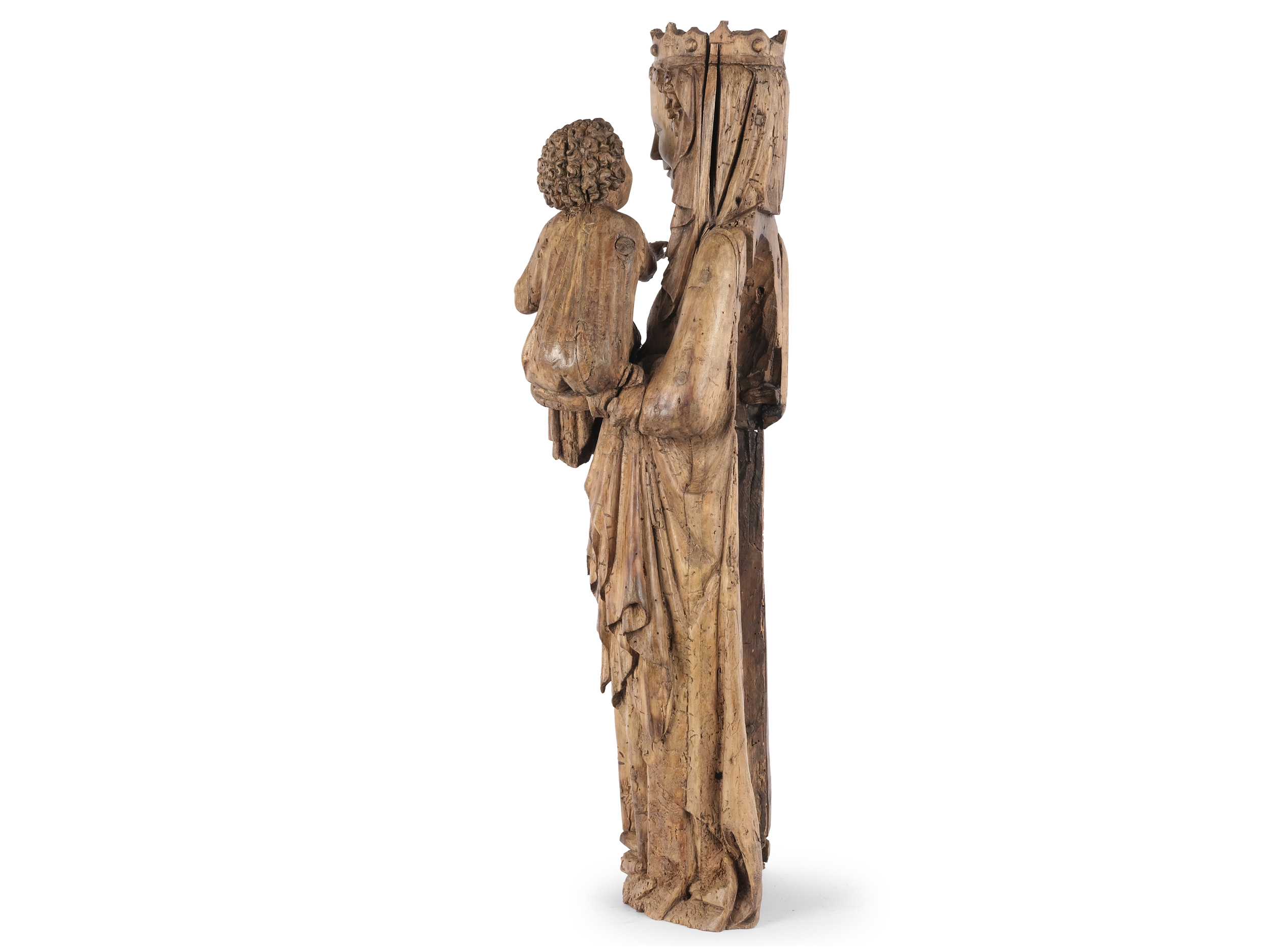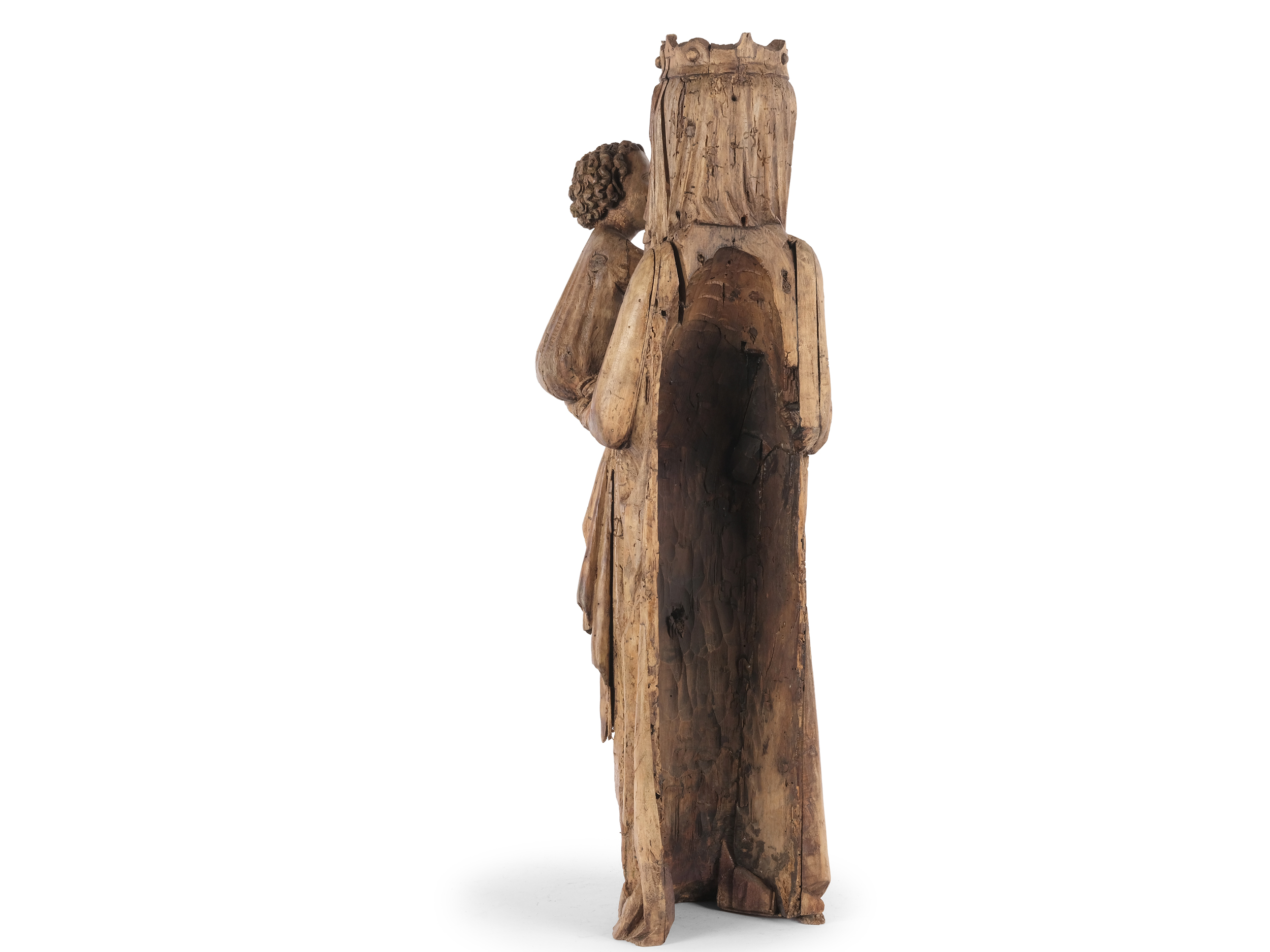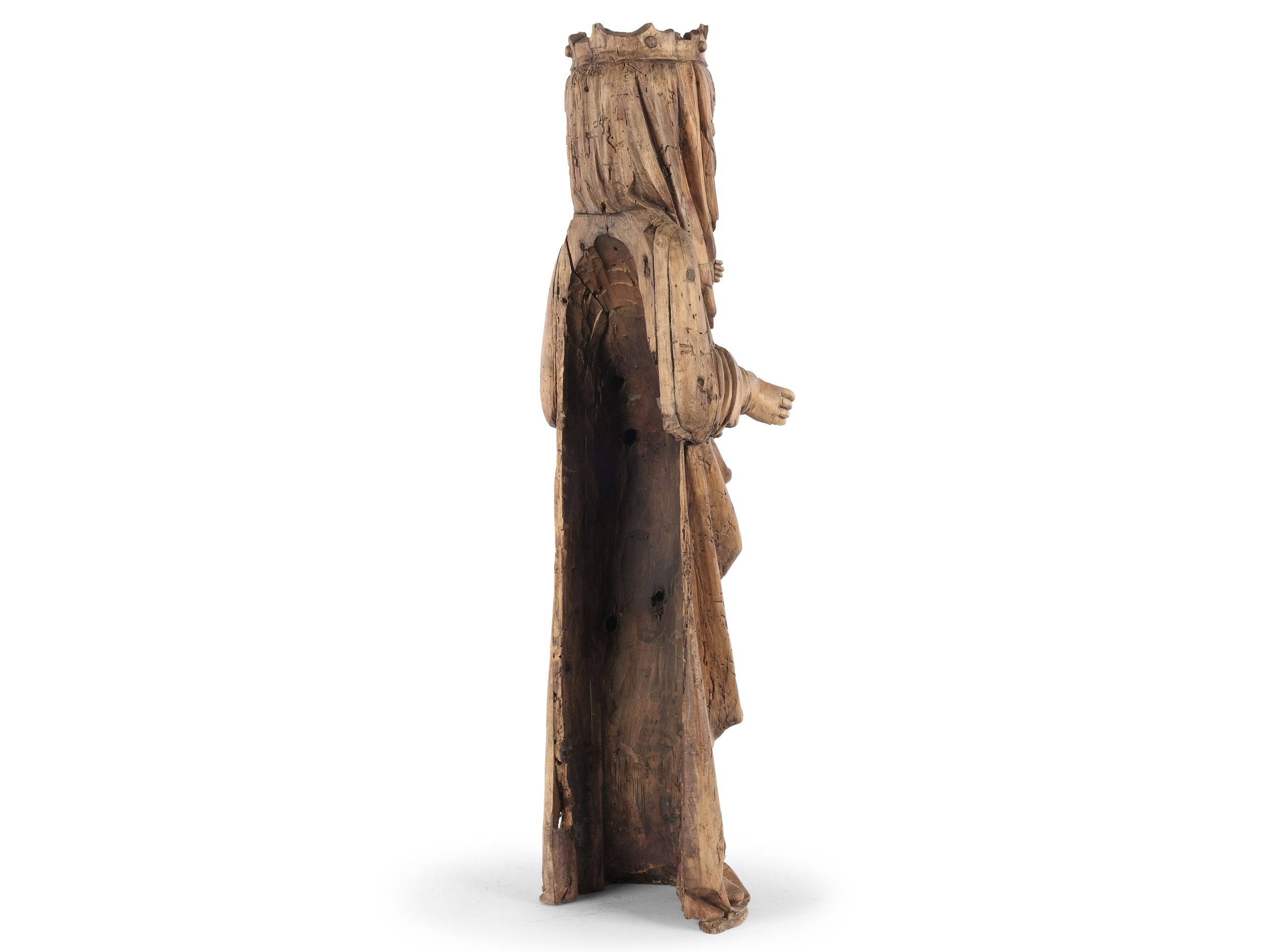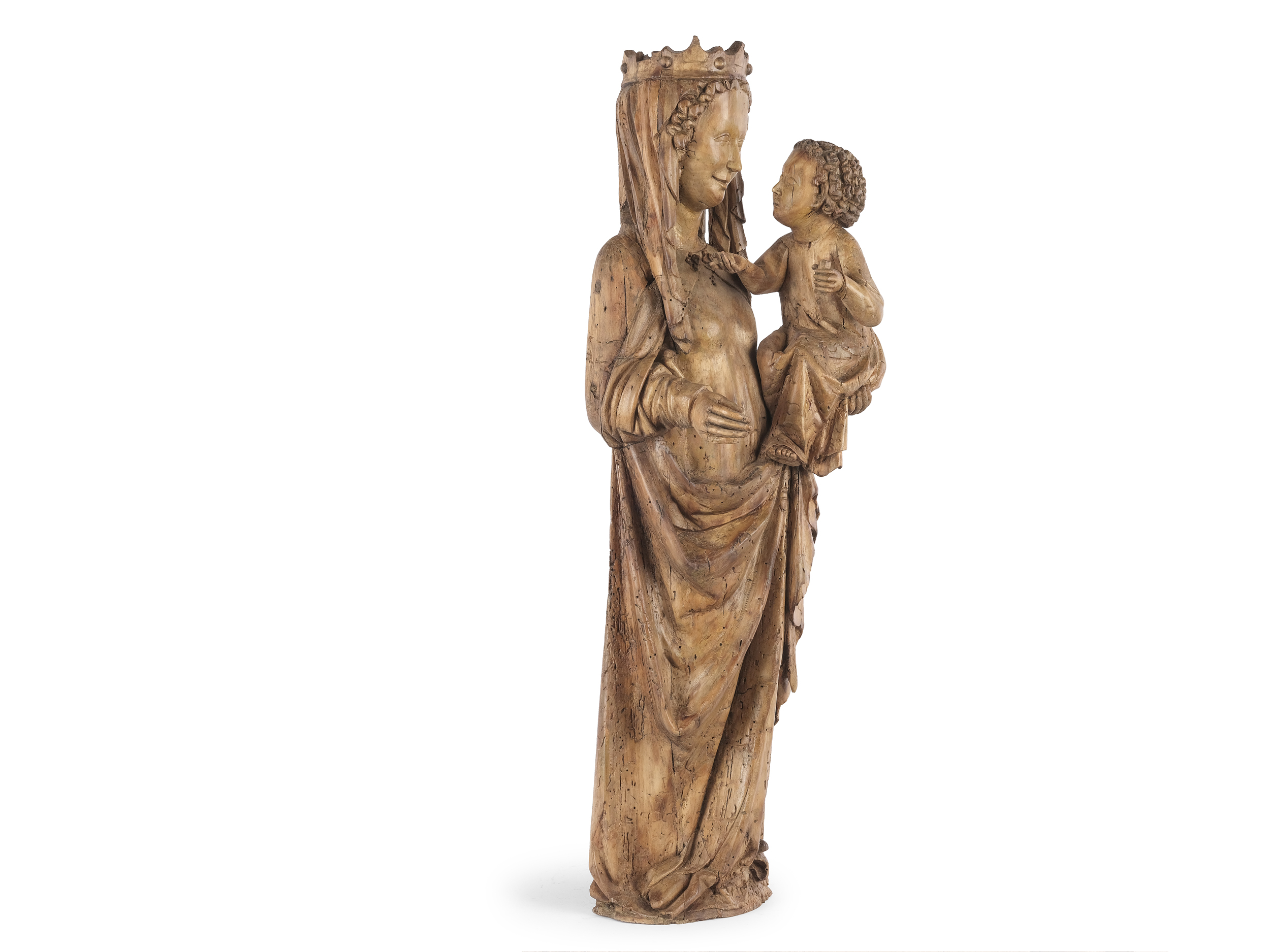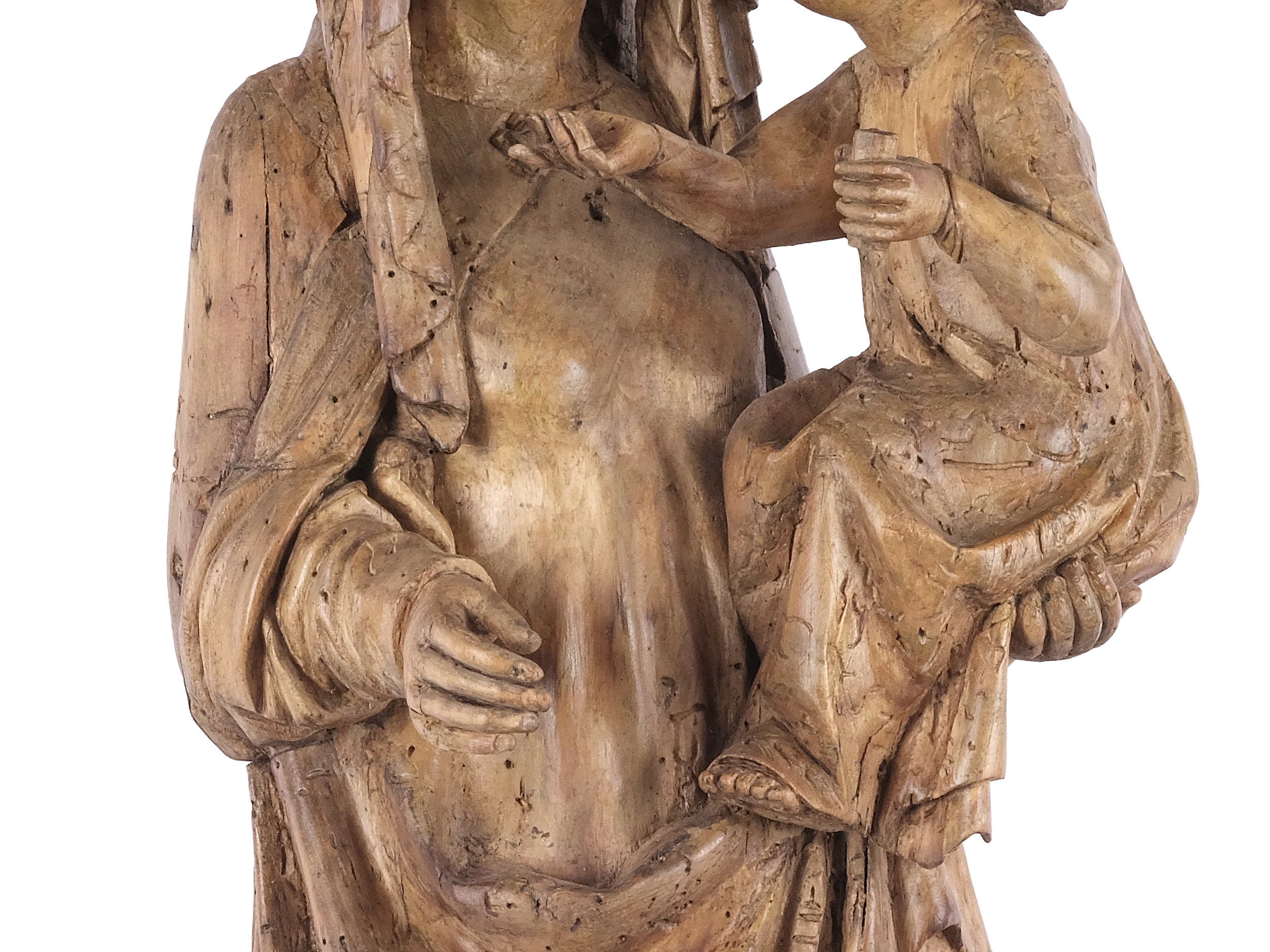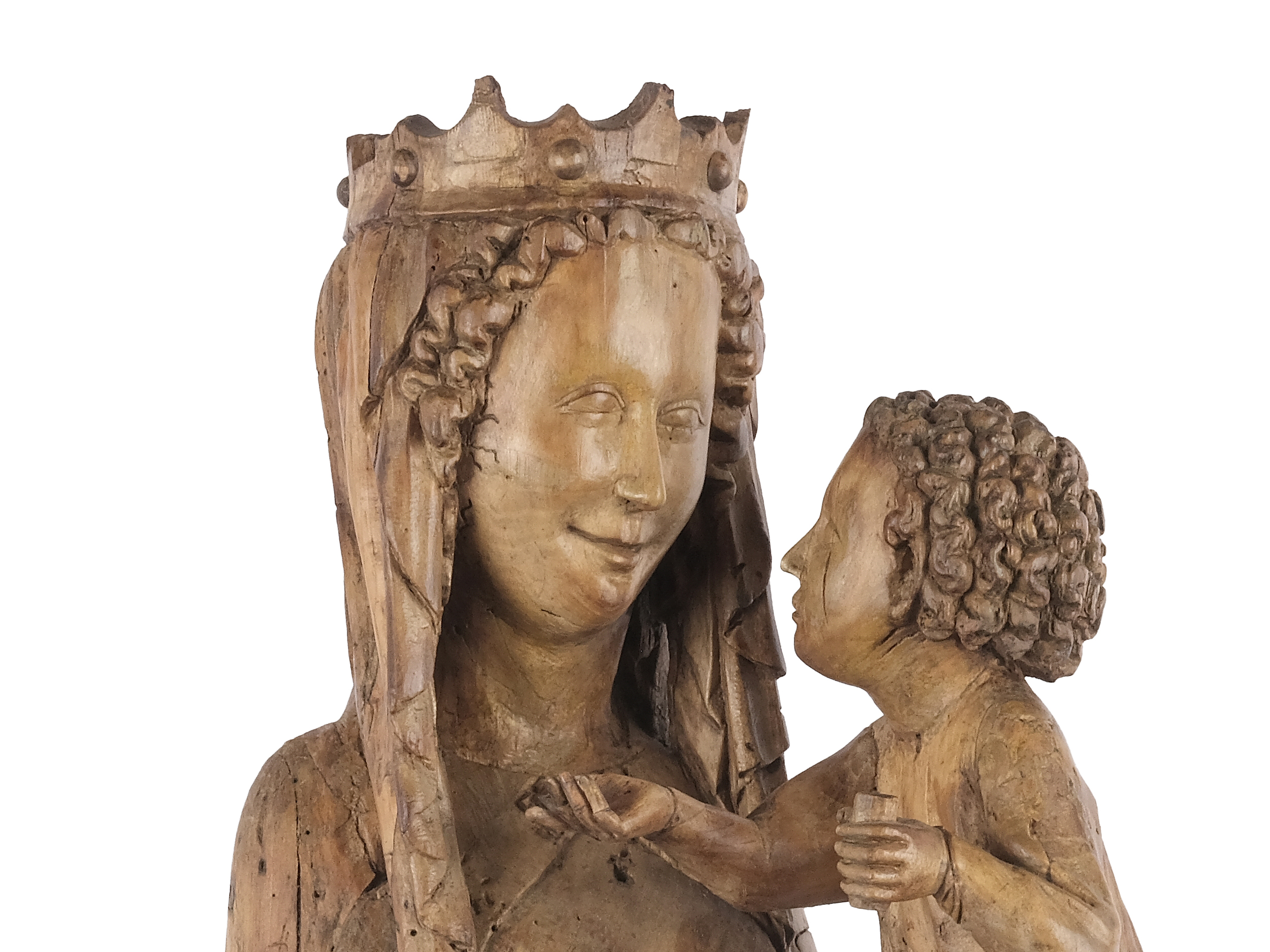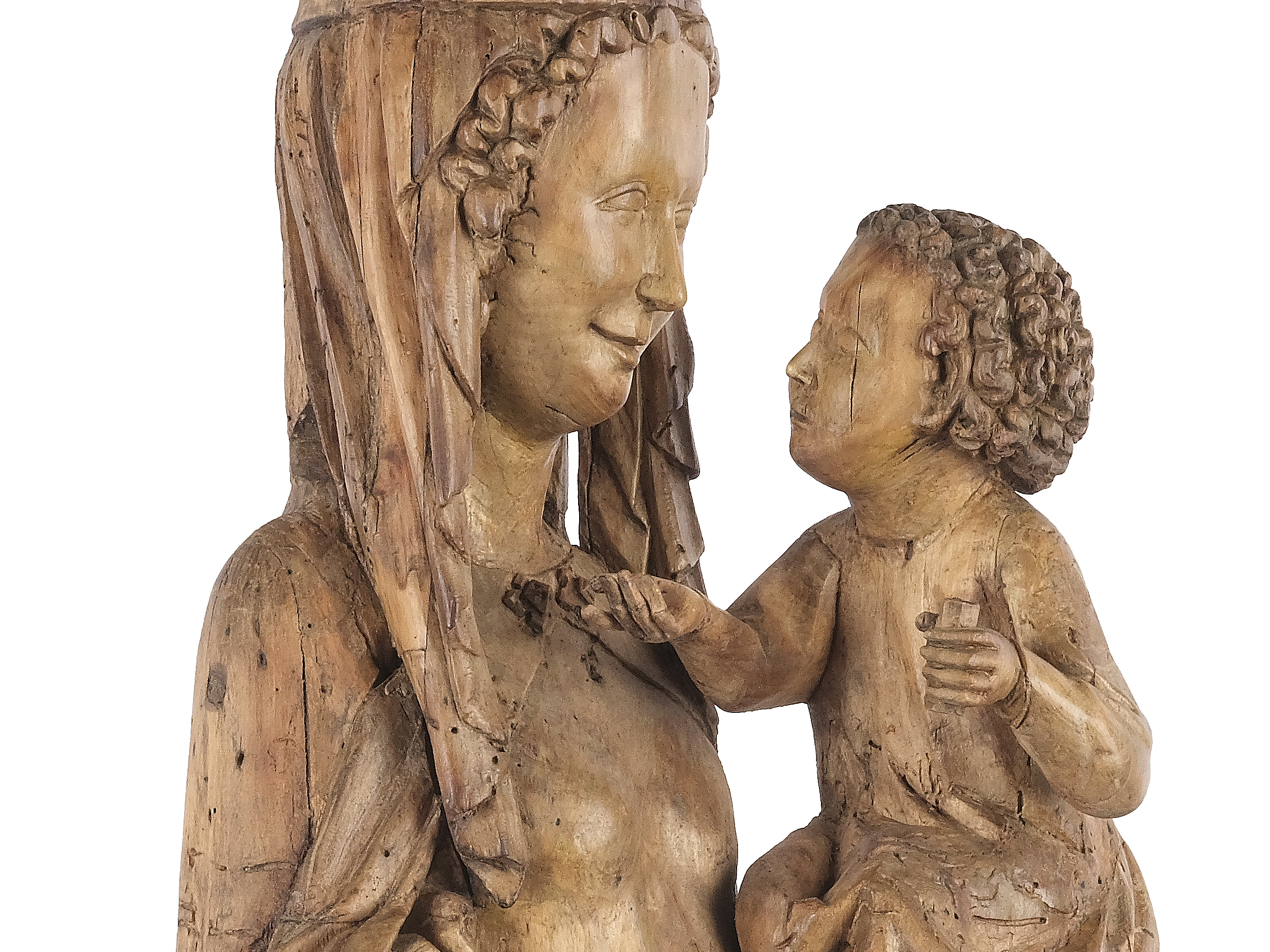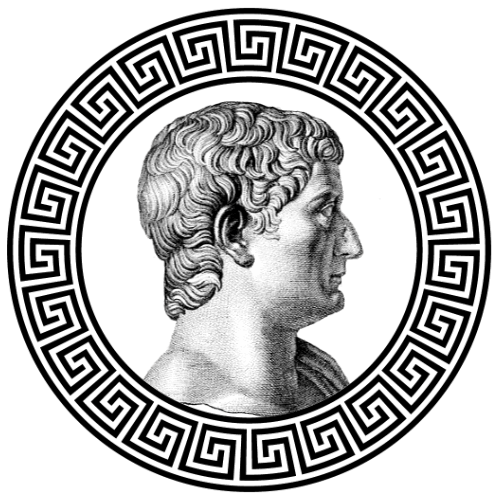Madonna
19th Tiberius Auction
Madonna
Starting price:
€ 8.000
- USD: 9.200 $
- GBP: 7.028 £
Estimated price: € 8.000 / 16.000
Madonna
Cologne area
Around 1300
Carved lime wood
Height 84 cm
This Madonna, carved around 1300 in the Cologne area, is a remarkable example of Gothic sculpture and craftsmanship. The sculpture consists of five individual parts joined together with dowels and offers a fascinating insight into the working process of a Gothic sculptor. By foregoing polychromy, the visible wood emphasizes the filigree carving and Gothic elegance of this devotional piece.
Mary and Child in focus
The Madonna is depicted standing with the baby Jesus in her arms. She wears a floor-length, flowing dress under a voluminous cloak fastened at the chest with a brooch. Her tall crown, decorated with elaborate Gothic carvings, symbolizes her status as Queen of Heaven. The clothed baby Jesus sits on her left arm, facing Mary. His right arm is raised, palm facing upwards, as if he is talking to her. In his other hand, he holds a scroll, an allusion to the Holy Scriptures and divine wisdom.
Mary’s pose reinforces this interaction; her right hand is slightly raised, suggesting that she is reaching for her son. The intimate relationship between mother and child is wonderfully conveyed through their physical closeness and the dynamics of their conversation, underscoring the tender and loving bond between them. The lively gesture of the Christ Child and Mary’s gentle demeanor create a dialogue of deep spiritual significance.
Mary’s face embodies the Gothic ideal of beauty. Her high forehead, almond-shaped eyes with pronounced eyelids, and small, straight nose are complemented by a slightly smiling mouth. Beneath her veil, finely crafted, thick curls frame her face and are mirrored in the short, wild curls of the Christ Child. This creates a visual harmony between the two figures.
Stylistic features of the Madonna
The sculpture is an outstanding example of Gothic craftsmanship shortly after 1300, characterized by detailed hair styling and masterful drapery. The curly hair of Mary and the baby Jesus is meticulously carved, giving the figures an almost tangible quality. Mary’s veil has doughy folds that flow softly yet voluminously. The close-fitting bodice of her dress contrasts with the dynamic folds of the cloak, which flows diagonally from rounded bowl folds into a more angular longitudinal fold. These folds become tighter towards the hem and regain a doughy quality where the cloak billows around Mary’s feet. Her pointed shoes also flash into view here.
The master sculptor’s skillful treatment of the drapery not only emphasizes the gracefulness of the figure, but also captures the stylistic preferences of the era. The alternating tension and softness in the folds of the fabric contribute to the Madonna’s liveliness and anchor the sacred theme of this image of grace in a tangible, human form.
Comparisons
A related sculpture is the so-called Madonna from Altenberg from around 1334 from the Bavarian National Museum in Munich (L 81/57). The smiling expression of Mary, the communication between mother and child, and the drapery are particularly similar. Of particular note here is the border lying almost flat on the ground, which arises from a diagonal longitudinal fold starting at the mother’s lap. However, other differences can be seen in the detailed rendering of the hair and in the degree of intimate exchange between mother and child. In the Altenberg Madonna, Jesus is only slightly turned toward his mother, his right hand vaguely extended in her direction.
A more intimate affection can be seen in the very similar “Milan Madonna,” which was created by one of the masters from the Cologne Cathedral workshop between 1300 and 1322. While the Altenberg Madonna was still depicted as the enthroned Mother of God, this is a courtly image of Mary, which occupies an important place in Cologne Cathedral as a miraculous image of grace. According to Robert Suckale, its French-inspired, mannerist style means it can be considered a “reference” for Gothic sculptures. In a very similar majestic pose, Mary is depicted with the child on her left arm, who turns toward her with a gesture of speech. Although the folds here are smaller and richer, this drapery corresponds to that of the figure presented here in the overall conception of a sequence of bowl folds, a transition to diagonal folds, and a mouthpiece in flat-lying borders. The smiling faces and the tender exchange of glances between mother and child are particularly comparable. However, in the depiction of the Madonna shown here, Jesus is completely turned toward his mother, even away from the viewer, in an active, excited posture, in an intense dialogue with Mary.
Emphasis on intimacy
This sculpture is characterized by its depiction of the intimate connection between Mary and the baby Jesus. The dynamic interaction between the figures is a clear departure from the more static, hierarchical depictions of the Virgin and Child in earlier eras. Their direct interaction—characterized by lively gestures, animated body language, and intense facial expressions—conveys a sense of warmth and personal connection. This emotional depth makes the work not only a piece of exquisite artistry, but also a profound object of devotion that invites viewers to reflect on the human aspect of the divine relationship in this sacred image.
Literature
Exhibition catalog Museum Schnütgen, November 4, 2011–February 26, 2012: Splendor and Grandeur of the Middle Ages. Cologne Masterpieces from the World’s Great Collections, Munich 2011.
Ulrike Bergmann, The Choir Pillar Figures of Cologne Cathedral. New Evidence in an Old Case of Art History, in: Wallraf-Richartz-Jahrbuch 75 (2014), pp. 7-36.
Renate Eikelmann (ed.), Bavarian National Museum. Handbook of Art and Cultural History Collections, Munich 2008.
Ulrich Söding, Beautiful Madonnas. Standing and Seated Figures, Munich 2008.
Robert Suckale, Art in Germany. From Charlemagne to the Present Day, Cologne 1998.
